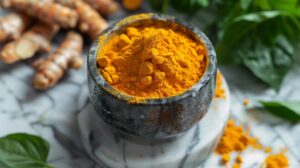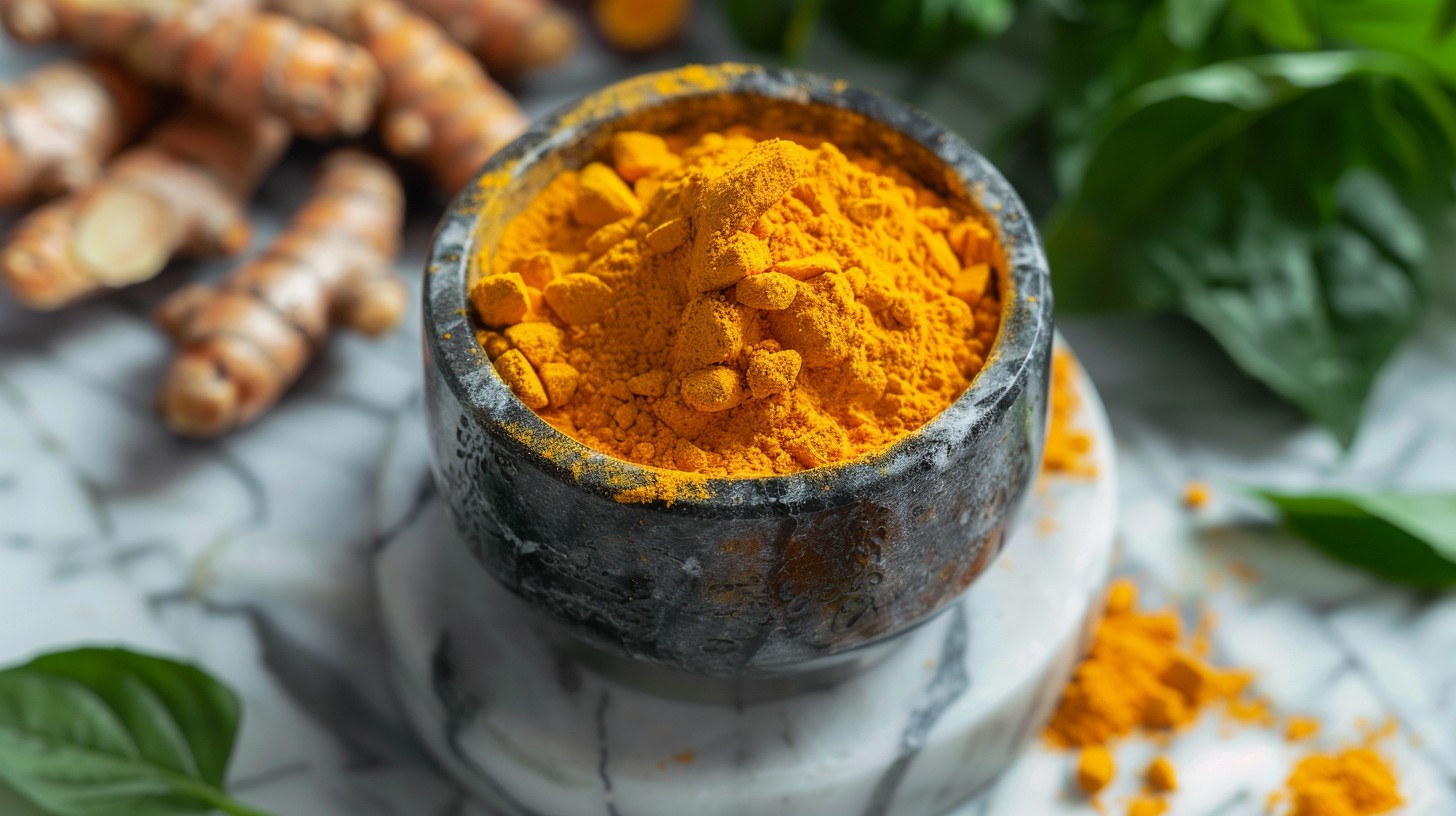What Are The Main Benefits of Turmeric?
Turmeric, also known as yellow gold, is a spice that comes from the root of the Curcuma longa plant. It is a spice with a yellow color, and from the shape of the root, we can say that it is very similar to ginger.
That is why it is also called Indian saffron and yellow ginger. It is a spicy spice and a natural cleanser and detoxifier. It is also called the yellow wonder of nature. Turmeric originates from the tropical forests of Southeast Asia. It is also cultivated in Southern China, India, Indonesia, and Java.
- Turmeric contains various bioactive compounds, essential oils, vitamins, and minerals.
- Turmeric is commonly used in culinary mixes, such as curry, and can easily be incorporated into the diet.

Is turmeric and curcumin the same?
Curcumin is the main component of turmeric. Thanks to the presence of curcumin, turmeric has an antioxidant effect, neutralizes free radicals, and slows down the aging of the body.
- Curcumin is a natural chemical compound found in turmeric and is its best-known and most-studied compound.
- It is responsible for turmeric’s vibrant yellow color and many of its health benefits.
- Curcumin is a polyphenol and acts as a powerful antioxidant and anti-inflammatory agent.
- It has been extensively studied, particularly its potential therapeutic effects on various health conditions, including cancer, arthritis, and cardiovascular disease.
- While turmeric is more commonly used as a culinary spice, curcumin is consumed in supplement form to achieve higher concentrations and potentially enhanced medicinal effects.
What is turmeric used for?
Turmeric is mostly known for its use in cooking, but it also has a wide range of health benefits. Let’s take a closer look at some of these benefits:
-
Reduces inflammation
Inflammation is the body’s natural response to injury or infection, but chronic inflammation can contribute to many health problems. Curcumin in turmeric has anti-inflammatory (anti-inflammatory) properties. Research has shown that curcumin can help reduce inflammation in conditions such as arthritis, asthma, and inflammatory bowel disease.
Several studies have found that curcumin may be as effective as nonsteroidal anti-inflammatory drugs (NSAIDs) in reducing pain and inflammation in people with rheumatoid arthritis and osteoarthritis research shows that curcumin may help protect against bone loss and osteoporosis. Curcumin may also help improve muscle recovery after exercise.
It can reduce muscle damage and soreness while improving muscle function and recovery time. Additionally, curcumin has been shown to increase levels of an important antioxidant called glutathione, which can help protect muscle cells from oxidative damage.
-
Strengthens immunity
Turmeric also has immune-boosting properties, which can help even your kids fight off infections. Curcumin has been shown to stimulate the production of immune cells and improve their function.
It can also help regulate the immune response, which can prevent autoimmune diseases. Curcumin is a powerful antioxidant, which means it can help protect cells from oxidative damage caused by free radicals.
Oxidative stress is linked to several health problems, including cancer, heart disease, and autoimmune disorders. By reducing oxidative stress, curcumin may help support the immune system and reduce the risk of these conditions.
-
Supports brain health
Curcumin can directly affect brain function. Research has shown that curcumin can help improve cognitive function and reduce the risk of neurodegenerative diseases such as Alzheimer’s and Parkinson’s.
Research has shown that curcumin can increase levels of a brain hormone called Brain-Derived Neurotrophic Factor (BDNF).
BDNF is important for the growth and survival of neurons, and low levels are associated with conditions such as depression and Alzheimer’s disease. By increasing BDNF levels, turmeric may help protect against these conditions.
-
Improves digestion
Turmeric traditionally aids digestion, and modern research has confirmed that it has digestive benefits. It stimulates bile production, which helps break down fats in the body.
It also has antibacterial properties, which can help destroy harmful bacteria in the gut. It can help reduce the symptoms of digestive disorders such as irritable bowel syndrome and ulcerative colitis.
It is also excellent for weight loss because it improves digestion.
-
Promotes healthy skin
Turmeric has also been shown to have benefits for the skin. Its anti-inflammatory properties can help reduce redness and irritation, while its antibacterial properties can help fight acne-causing bacteria.
Turmeric can also help reduce the appearance of fine lines and wrinkles.
However, it’s important to note that turmeric supplements can interact with certain medications, so it’s best to check with your doctor before using them.
Conclusion
In conclusion, turmeric is a powerful spice with many health benefits that the whole family can benefit from. By including it in your family’s diet, you can help promote their health and well-being.














Post Comment